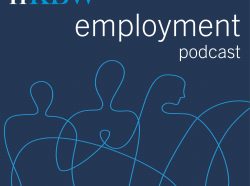Carbon dating: emissions trading, MTIC fraud and assessment time limits.
Introduction
Missing trader (or ‘MTIC’) fraud has blighted various trade sectors from mobile phones and CPUs to platinum and carbon credits. It is in the latter sector that we have seen some of the largest denials of input tax based on the Kittel principle.
Given that the input tax in dispute is often in the tens of millions, it is no surprise that taxpayers are vigorously challenging HMRC’s decisions.
A Kittel appeal involves the First-tier Tribunal (‘FTT’) considering whether the input tax that has been denied was incurred in transactions that were connected with fraud and whether the taxable person seeking to deduct that input tax knew or should have known of the connection with fraud. Kittel appeals are almost always hard fought; with various interlocutory skirmishes in relation to matters such as the adequacy of the Statement of Case and HMRC’s disclosure obligations and, at the substantive hearing, detailed factual (and sometimes expert) evidence being called by both sides. However, one aspect of these cases that has not been litigated as often as one might think it would have been is the issue of whether the assessments to VAT have been raised within the requisite time limits. That was the issue that was considered by the FTT in Carbondesk v HMRC [2015] UKFTT 0367 (TC).
The FTT’s approach in Carbondesk is, for the reasons set out below, not unimpeachable. Given that the factual scenario in Carbondesk is one that is likely to be replicated in other Kittel appeals, it seems certain that Carbondesk will not be the last word on this issue.
Relevant legislation
Sections 73(1) and (2) VATA give HMRC the power to make assessments of VAT. The time limits for raising assessments under s. 73(1) and (2) are provided for in s.73(6) and s.77(1) which provide in relevant part:
73(6). an assessment…must be made within the time limits provided for in section 77 and shall not be made after the later of:
(a) 2 years after the end of the prescribed accounting period; or
(b) one year after evidence, sufficient in the opinion of the Commissioners to justify the making of the assessment, comes to their knowledge
…
77(1). Subject to the following provisions of this section, an assessment under s.73…shall not be made –
(a) More than 4 years after the end of the prescribed accounting period or importation or acquisition concerned.
The correct approach to s.73(6)(b)
In Pegasus Birds Ltd v CCE [19991] STC 95, Dyson J held that the correct approach for a tribunal to adopt when considering a s.73(6)(b) challenge to an assessment is to:
(1) decide what were the facts which, in the opinion of the officer making the assessment on behalf of the commissioners, justified the making of the assessment; and
(2) determine when the last piece of evidence of these facts of sufficient weight to justify making the assessment was communicated to the Commissioners as this will be the date that the one period runs from.
Dyson J also stated that:
(1) an officer’s decision that the evidence of which he has knowledge is insufficient to justify making an assessment, and accordingly, his failure to make the assessment earlier will only be capable of being successfully challenged if it was Wednesbury unreasonable; and
(2) the burden is on the taxpayer to show that the assessment was made outside the time limit specified in s.73(6)(b).
Application of the legal test to the facts in Carbondesk
The input tax denied to Carbondesk amounted to some £95 million across VAT periods 06/09 and 07/09. The relevant supplies involved 52 counterparties. The entirety of the input tax was denied by way of a single assessment made on 26 October 2012.
At [20], the FTT stated that the question of whether the 26 October 2012 assessment was in time could be answered by determining the additional pieces of evidence received by HMRC within one year of the date of the assessment which the assessing officer considered to have justified the assessment and then considering whether it was wholly unreasonable for the assessing officer to treat that further material as the last piece of evidence of sufficient weight to justify the making of the assessment.
On the facts in Carbondesk, the only material additional relevant material received by HMRC in the year preceding the 26 October 2012 was certain basic ‘due diligence’ information relating to two of the 52 counterparties Indeed, the FTT observed at [70]:
‘ …the material was insignificant in quantity compared to the many thousands of documents previously received….on which it based its decision to assess in respect of transactions between Carbondesk and 50 of the 52 counterparties with whom in [sic] dealt in the relevant period. It would clearly have been open to [the assessing officer] to make an earlier assessment in relation to those transactions and leave the Pan Energy and Winnington transactions out of account at that stage to be considered later in the light of the receipt of the further information requested.’
The FTT acknowledged at [24] that in Mobilx Ltd (in administration) v Revenue and Customs Commissioners [2010] STC 1436, Moses LJ had said that the Kittel test was simple and ought not to be over-refined and, further, tribunals hearing Kittelappeals ought not to unduly focus on whether a trader acted with due diligence.
Nonetheless, the FTT found that it was not wholly unreasonable for the assessing officer to treat the limited further due diligence material as the last piece of evidence of sufficient weight to justify the making of the assessment. In so finding the FTT stated at [83]:
‘..the key issue which leads to a conclusion that it was not…wholly unreasonable to rely on the limited [due diligence] material…is the fact that Carbondesk continued to trade after the warnings given on 14 July 2009. Whether to not [the assessing officer] was right to say that the new material, or particularly what she saw as a lack of evidence of a changed approach, does help in concluding that there was actual knowledge of a connection to fraud is not a matter for this decision. However, it seems to me that it cannot be said that it was perverse or wholly unreasonable of her to pursue this issue…’
However, this reasoning is open to question given that it must be the case that prior to receipt of the new material HMRC had reached the view that:
1. all of the transactions on which input tax was eventually to be denied were connected with fraud (due diligence not being capable of going to that issue); and
2. in relation to the transactions involving 50 of the 52 counterparties, the Appellant had actual knowledge of the connection with fraud.
If the Appellant did, as HMRC seemed willing to assert prior to receipt of the new material, have actual knowledge of fraud in the transactions involving 50 of its 52 counterparties, it might be thought nigh on impossible to conclude that it did not also have actual knowledge of fraud in the transactions involving the remaining two counterparties. In such circumstances, it would be Wednesbury unreasonable for the assessing officer to treat the further due diligence material as the last piece of evidence of sufficient weight to justify the making of the assessment. This point does not seem to have been adequately grappled with by the FTT. Rather the FTT simply states at [83] that HMRC were entitled to take into account all the circumstances regarding the totality of the transactions that were potentially to be included in the assessment.
Only time will tell whether future Tribunals will be as forgiving of HMRC’s decisions when an appellant challenges an assessment on the basis of s.73(6)(b).
David Bedenham has extensive experience of acting for HMRC and for Appellants in VAT, customs duty and excise related matters.
This article was first published in De Voil Indirect Tax Intelligence (December 2015) and is reproduced by kind permission.
Click here for a printable PDF version of this article.








